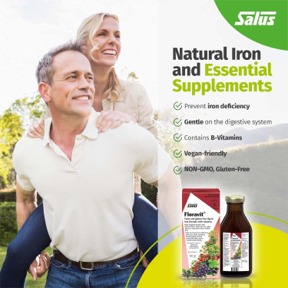
What Controls Our Mood & How to Manage It
Share

The physiological reasons for your mood are buried deep within a network of regions in the brain. These regions each have unique responsibilities to regulate mood. They attach emotional significance to events and memories or remind us what course of action is appropriate for your present mood. They also modulate hormones associated with mood and control functions. Your brain relies on specific neurotransmitters for all its functions. Three of the most significant ones that play a role in your mood are Dopamine, Serotonin, and Norepinephrine.
Dopamine is responsible for signaling reward-motivated behaviour, motivation, arousal, reinforcement and motor control. Dopamine also responds to basic needs, such as eating and drinking water. As a critical neurotransmitter that sends messages for motor movement, any damage to the dopamine neurons or a decrease in their supply can result in nervous system disorders, such as Parkinson's disease. However, an overabundance of dopamine can cause the body to make too many movements. These uncontrolled, unnecessary movements are a common characteristic of Tourette's syndrome. Dopamine does not directly alter your mood, but it does influence mood and overall happiness.
Serotonin is a well-known brain neurotransmitter that functions as a mood stabilizer. It is sometimes referred to as the happy chemical or happy hormone and goes by the chemical name 5-hydroxytryptamine. Serotonin is made from the essential amino acid called L-Tryptophan. L-Tryptophan) is essential because the body does not produce it on its own. It has to enter your body through your foods (e.g. nuts, cheese, red meat, turkey). An insufficient supply of L-Tryptophan can result in mood and anxiety disorders.
Did you know that serotonin is primarily produced in your gut and intestines ( 90%) and is responsible for controlling bowel movements? Serotonin is also partly responsible for the feeling of nausea. Serotonin is also produced in the brain and is responsible for regulating anxiety, happiness, and mood. Serotonin is a precursor to the production of melatonin, which regulates the parts of the brain that control your sleep-wake cycle. It also controls some social behaviour, body temperature regulation, sexual desire and function. Low serotonin levels may affect memory, judgement, mood, self-esteem, anxiety, aggression, sleeping and increased food cravings for sweet or starchy foods. Serotonin also helps regenerate brain cells.
Norepinephrine is also known as noradrenaline. It is both a hormone and a brain neurotransmitter. It helps moderate your mood by controlling how your body responds to stress and anxiety. It is responsible for your baseline alertness as you go about your day, keeping you alert without the hyper-alertness or panic caused by adrenaline. It also jumps into action and provides the body with bursts of energy during times of stress. As a neurotransmitter, it helps regulate heart rate and blood pressure, memory arousal or interest. Symptoms of low Norepinephrine may include loss of alertness, depression, brain fog, fatigue or lack of motivation.
The Summary
Using supplements to natural tweak and support the primary brain neurotransmitters may help relieve symptoms of sadness and elevate and support mood. This is especially true for serotonin, which seems to have the most significant impact on mood and happiness. There are many mood-supportive supplements, but not all of them will cross the blood-brain barrier and get right to work. When we refer to the "blood-brain barrier," we refer to a dense concentration of cells that restrict the passage of some substances from the blood to the brain. When an element or nutrient can pass the 'blood-brain barrier," it means that it does not have to go through all the normal processes within your body to get to the brain.

Natural Mood Modulators
5-HTP stands for 5-hydroxytryptophan. 5-HTP supplements are made from the seeds of an African plant called Griffonia Simplicfolia. 5-HTP is also a by-product of the amino acid tryptophan, which the body converts into serotonin. 5HTP works to soothe the mind and provide internal comfort from stress and worry. Increasing the amount of serotonin in the brain appears to help brain cells communicate, which reduces symptoms of depression and improves mood.
L-Tryptophan supplements may also be an option for supporting mood. However, 5-HTP is more effective than tryptophan because 5HTP can cross the blood-brain barrier and get to work. 5HTP may also help to control appetite if the underlying cause of overeating is related to mood. In contrast, L-Tryptophan requires chemical conversions in the body before providing the same type of benefits.
Look for brands such as Look for brands such as WomenSense HappySense , and be sure to follow label directions
Supplements such as L-Tyrosine may improve mood by modulating the neurotransmitter norepinephrine. When the body is under constant stress, it depletes its reserves of norepinephrine, ultimately affecting energy. Norepinephrine may moderate your mood by controlling how your body responds to stress and anxiety. L-Tyrosine can also help the synthesis of how the body uses Norepinephrine and Dopamine. L-Tyrosine is also a building block of thyroid hormones, which control energy production within the body. It also repairs damaged cells and can increase your cell's resistance to stress. L- Tyrosine has been researched to help with mild to moderate depression in situations where low dopamine or norepinephrine are present. Supplementing with tyrosine may help those that sleep-deprived stay alert for longer when taken during the day.
Tyrosine is safe for most people but should be avoided as a stand-alone supplement if you take blood pressure medications. It can also interfere with antidepressants and thyroid medication. If you consider L-Tyrosine as a stand-alone supplement, look for the "Free Form Amino Acid L-Tyrosine.
Natural Factors Mental Calmness
L-Theanine is an amino acid commonly found as an extract of green and black tea leaves. L-Theanine can cross the blood-brain barrier and affect the brain directly, and may target brain chemicals such as serotonin (the transmitter responsible for feelings of happiness) and dopamine levels (responsible for cognitive function, creation, and motivation.
L-Theanine helps to increase relaxation and calmness without any of the sedative, sleepy effects. We like to say it "quiets the mind, but also produces a wakeful relaxation. At the same time, it also links to brain chemicals that help with anxiety and stress. It is often found in sleep products because active minds are often a problem for sleep. When taken during the day, it can help reduce anxiety and nervousness.
Natural Factors supplements come in chewable form or capsules under the brand Stress Relax Mental Calmness. The chewable form "Mental Calmness" can produce noticeable benefits within 30-40 minutes of ingestion and is the most recommended form
Ashwagandha (Withania Somnifera) is an ancient Ayurvedic herb with newfound research to support mood. The naturally occurring compounds in Ashwagandha produce a unique mechanism of action that affects the body in varying ways. Ashwagandha has been shown to significantly increase GABA levels in the brain, which we know to help reduce the over-firing of neurons that cause stress, anxiety and nervousness. This herb appears to help lower cortisol levels, a hormone produced by your adrenal glands in response to stress-producing and adaptogenic effects to manage your body's stress response. The adaptogenic effects balance the endocrine system and positively affect the reproductive system, immune function, and overall energy metabolism.
To see the benefits of Ashwagandha, use supplements that contain a specific form of the herb called organic KSM-66 Ashwagandha root extract. like those found in Natural Factors Ashwagandha. KSM-66 Ashwagandha is a full-spectrum extract made from only the ashwagandha root. It is one of the most clinically studied ashwagandha root extracts on the market and has the same potency that is used in multiple clinical studies
Rhodiola is also known as Rhodiola Rosea or Roseroot and is fast becoming a sought-after ingredient in combination supplements for stress and anxiety. However, it deserves merit as a stand-alone supplement for its energy-boosting properties. It is often used as an adaptogen to help the body better manage the stress response, improve mental and emotional health, and combat the tiredness associated with stress. When the body is under continued stress, the body naturally fatigues. The body uses all its resources to focus on the stress responses. Constant stress also interferes with the thyroid hormones decreasing your metabolism and further depleting your energy. Rhodiola helps reduce various stress-induced chemicals helping to bring the body back to normal levels and alleviating general and mental fatigue. Rhodiola is also known as a "nootropic," a substance that enhances brain function, including attention, memory, thought formation, calculating, evaluating, planning, and overall learning. Rhodiola activates critical neurotransmitters such as norepinephrine, serotonin, dopamine and acetylcholine
Do not take Rhodiola supplements in the evening as the energy-producing effects may interfere with sleep. Use caution in combining Rhodiola with prescription medications for depression and anxiety
Saffron is easily recognized as a spice, but in concentrated supplement form, it is far more, it can boost mood. Saffron contains naturally occurring chemicals that may affect mood and modulate specific stress pathways. It also supports the three primary neurotransmitters in the brain (dopamine, norepinephrine, and serotonin), provides effective neuroprotection and can balance over stimulation. Natural Factors Saffron contains "Affron," a premium saffron ingredient that is standardized to 3.5% Lepticrosalides®, a complex of saffron's key active compounds.
GABA ( Gamma-aminobutyric acid) is an amino acid and a neurotransmitter that is produced naturally in the brain. It can also be made available through the conversion of some supplements and as a stand-alone supplement. GABA is produced by the body to counteract the affects of natural stimulating hormones produced by the adrenal glands during times of stress, panic, and anxiety. Think of GABA as "putting on the brakes" when the brain cells are overfiring and bringing the mind to a state of relaxation and calmness. Due to the action of GABA, it can have a sedative effective and is supplementation should occur in the evening or before bed. GABA supplements work a bit differently than the supplements mentioned above. It does not necessarily cross the blood-brain barrier, but it works through a network of neurons that control your gastrointestinal system (enteric nervous system) through the vagal nerve then to the brain.

The information provided in this article is not meant to treat or diagnosis. It is provided for informational purposes only. Due to the action of 5HTP and other supplements mentioned in this article, they should not be taken with any medications that affect serotonin levels or are intended to treat mood disorders without consulting with your medical advisor. L-Tyrosine has stimulating effects and should not be taken at night. It may also cause over-stimulation and interact with the absorption and action of some prescribed medications such as heart and. L-Theanine supplements may interact with stimulants and sedatives, and Rhodiola may interact with medications for high blood pressure, diabetes or blood thinners. Discuss all health concerns with your health care provider
Resources






